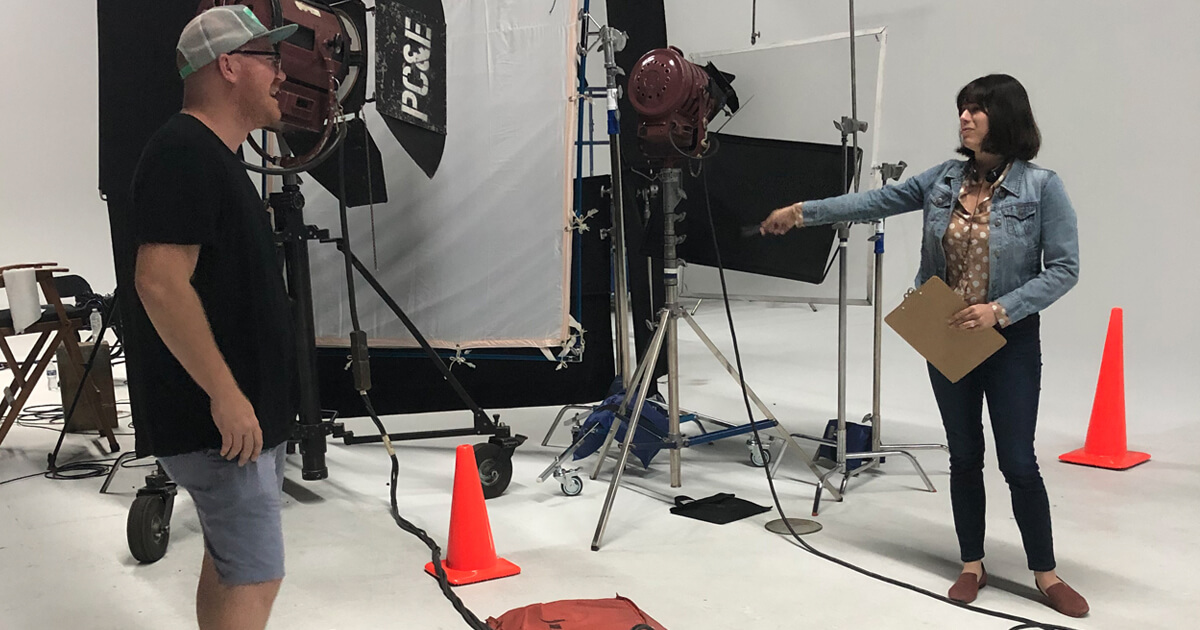How Event Production Works: A Comprehensive Check Out the Process
Event production is a facility and organized process that calls for cautious preparation and execution. It begins with establishing clear goals and understanding the target audience. Each action, from budgeting to venue selection, plays a crucial function in guaranteeing success. As the process unfolds, different components need to straighten flawlessly. Yet, the nuances of this complex operation usually go undetected. What are the key stages that add to a memorable event?

The Initial Drawing Board
When starting on event production, careful preparation is necessary to assure an effective end result. The preliminary drawing board offers as the structure for all succeeding initiatives. Throughout this stage, event manufacturers should define the event's purpose and goals clearly. Recognizing the target market helps tailor the experience and messaging, ensuring importance and engagement.Producers have to likewise consider the event style, whether it be in-person, virtual, or hybrid, as this will influence numerous logistical aspects. Selecting an appropriate date and venue is crucial, as it impacts accessibility and availability.Furthermore, constructing a dependable team is basic for dividing obligations and enhancing interaction. Establishing a timeline with landmarks assurances all tasks are completed on time. This stage entails extensive research, including determining prospective obstacles and creating strategies to reduce dangers. Inevitably, a well-structured initial planning stage establishes the tone for a successful event production journey.

Budgeting and Source Appropriation
In event production, reliable budgeting and source allowance are essential for success - event production charlotte. Establishing financial criteria establishes the foundation for all succeeding choices, while source circulation techniques ensure that every part of the event is sufficiently sustained. With each other, these aspects help maintain control over expenses and optimize the usage of offered sources
Establishing Financial Parameters
Establishing economic specifications is crucial to the success of any type of event production, as it sets the foundation for efficient budgeting and source appropriation. This process starts with defining the general budget plan, which incorporates all aspects of the event, including place prices, catering, and advertising and marketing. By determining offered funds, event planners can prioritize expenditures and designate resources accordingly. In enhancement, it is necessary to conduct detailed market research study to anticipate prospective prices and recognize funding sources, such as sponsorships or ticket sales. Establishing clear economic criteria also help in risk administration, permitting planners to set apart contingency funds for unanticipated expenditures. Eventually, a well-defined budget offers as a roadmap, directing the event production team in the direction of achieving their objectives while keeping monetary control.
Source Distribution Approaches
Reliable resource circulation techniques are vital for making the most of the impact of an event while sticking to budget restrictions. Successful event production requires a careful approach to budgeting and source allocation. Coordinators should prioritize vital aspects such as venue, catering, and innovation, guaranteeing that funds are alloted to areas that improve participant experience. A thorough spending plan must detail anticipated expenses and identify areas for possible cost financial savings, such as negotiating with vendors or exploring sponsorship possibilities. Additionally, tracking expenditures throughout the preparation process assists avoid overspending. By employing tactical resource circulation, event producers can supply a remarkable experience while preserving financial duty, eventually contributing to the general success of the event.
Place Choice and Logistics
Choosing the ideal venue is necessary to the success of any event, as it establishes the stage for the general experience. Place choice entails evaluating different factors, consisting of ability, ease of access, and area. Planners should take into consideration the target audience and the nature of the event, making sure the place lines up with the event's goals.Logistics play a substantial role in this process, including setups for seats, audiovisual equipment, and catering services. An appropriate location must facilitate smooth flow for guests and personnel, boosting engagement.Additionally, assessing potential venues for features like vehicle parking, bathrooms, and emergency situation exits is necessary for security and comfort. The timeline for safeguarding the place is additionally critical, as prominent places may reserve swiftly - event production charlotte. Subsequently, detailed preparation and prompt implementation can inevitably add to a smooth event experience, making place choice and logistics essential elements of successful event production
Creative Principle Growth
While the location sets the physical stage, creative principle growth shapes the event's identity and story. This procedure begins with determining the event's function and target market, enabling event manufacturers to develop an engaging theme that resonates with attendees. Conceptualizing sessions often consist of diverse perspectives, fostering cutting-edge ideas that align with the event's goals.Once a style is established, aesthetic aspects such as color schemes, signage, and style are created to improve the total ambience. Storytelling techniques might likewise be incorporated to produce an engaging trip for participants, assuring a memorable experience. In addition, considerations regarding amusement, activities, and interactive parts are aligned with the picked concept, enhancing the theme throughout the event.Ultimately, reliable innovative principle development warranties that every aspect of the event functions cohesively, leaving a lasting perception on participants and satisfying the event's purposes. This foundational job lays the groundwork for subsequent preparation and execution stages.
Teaming up With Vendors and Vendors
Effective event production rests on efficient cooperation with vendors and vendors. Picking reputable companions, negotiating contracts effectively, and making sure timely shipments are important steps in this process. Each of these variables adds significantly to the general success and smooth implementation of an event.
Selecting Reliable Partners
Just how can event organizers ensure a smooth production experience? Picking reliable partners is vital in accomplishing this objective. Event organizers have to conduct comprehensive research study to determine suppliers and vendors with a tested track document of quality. This consists of examining referrals, assessing profiles, and reviewing consumer responses. Organizers should prioritize companions that show professionalism and reliability, prompt interaction, and a readiness to team up. Building solid partnerships promotes depend on and allows quick analytic throughout the event. In addition, it is helpful to select regional vendors who recognize the place and regional logistics. Ultimately, a successful event rests on the harmony between coordinators and their companions, making certain that every facet of production runs efficiently and effectively.
Working Out Contracts Properly
Efficient negotiation of agreements is a crucial step in the collaboration in between event coordinators and their vendors and distributors. This process involves clear interaction of expectations, deliverables, and timelines. Organizers need to conduct detailed research on market prices and market requirements to establish a baseline for arrangements. It is necessary to produce a collaborative ambience, encouraging open discussion regarding terms, rates, and prospective backups. Coordinators need to likewise focus on comprehending the supplier's abilities and constraints to align their demands efficiently. Adaptability can result in equally advantageous arrangements, fostering long-lasting relationships. Crafting well-defined contracts that consist of specific performance metrics can aid guarantee responsibility, inevitably leading to successful event execution and fulfillment for all events involved.
Making Sure Prompt Deliveries
Timely shipments are essential for the smooth execution of any event, needing thorough cooperation between planners and their vendors and vendors. Reliable communication is essential, as it helps establish clear assumptions pertaining to distribution schedules, quantities, and specific read more demands. Coordinators commonly develop comprehensive timelines to outline critical turning points, making sure all celebrations stay straightened throughout the procedure. Routine check-ins with suppliers can assist determine potential hold-ups early, enabling positive solutions. Additionally, developing solid partnerships with trusted vendors promotes depend on and responsibility, which can lead to much better service and prioritization. By focusing on these joint efforts, planners can decrease disturbances, consequently improving the overall efficiency of event production and making certain that all essential products and services arrive as planned.
Advertising And Marketing and Promotion Techniques
While organizing an event, the success of marketing and promo techniques can substantially influence presence and interaction. Effective approaches frequently include a mix of digital marketing, typical advertising and marketing, and grassroots outreach. Using social networks platforms permits for real-time communication and targeted advertising and marketing, getting to certain demographics effectively. Email advertising and marketing campaigns can better engage possible attendees with individualized content and reminders.Collaborations with influencers or industry leaders can also improve reliability and broaden reach. Developing appealing web content, such as videos or blog sites, helps to produce buzz and suffer interest leading up to the event. about his Furthermore, leveraging early-bird discount rates and unique perks can incentivize ticket purchases.Promoting with typical channels, such as posters or local media, stays appropriate, specifically in community-focused occasions. A comprehensive technique that incorporates numerous approaches guarantees maximum exposure and interaction, eventually adding to the event's success and the production of a remarkable experience for participants.
On-Site Implementation and Management
On-site execution and monitoring are important elements that identify the general success of an event. Effective coordination during the event guarantees that all elements align with the intended schedule. Event supervisors look after logistics, consisting of supplier sychronisation, devices configuration, and guest services. Keeping track of timelines and dealing with any type of unforeseen issues are fundamental for keeping a smooth experience.The personnel plays a substantial role, as qualified personnel are responsible for numerous jobs such as registration, information circulation, and technical assistance. Communication among staff member is necessary; it cultivates a collaborative environment and enables fast resolution of challenges.Additionally, safety procedures should be complied with, guarding the health of all guests. Post-event analyses are additionally component of on-site administration, supplying insights for future renovations. By focusing on these aspects, event manufacturers can create unforgettable experiences that fulfill or surpass attendee expectations while attaining the event's goals.
Regularly Asked Concerns
Just how Do I Select the Right Event Motif?
Selecting the appropriate event style includes taking into consideration the target audience, event objective, and location. Looking into current fads and gathering input from stakeholders can likewise motivate innovative concepts that resonate and produce a remarkable experience.

What Prevail Blunders in Event Production?
Typical errors in event production typically include insufficient planning, bad interaction amongst employee, budget mismanagement, disregarding to take right into account the target market's demands, and failing to carry out a detailed post-event analysis for future renovations.
How Can I Measure Event Success?
To determine event success, one can evaluate guest contentment, involvement levels, spending plan adherence, and post-event comments. Key efficiency indicators, such as ticket sales and social media sites interactions, also give useful insights right into overall performance.
What Should I Do if It Rains on the Event Day?
In case of rain on the day, the coordinator ought to apply contingency strategies, such helpful hints as securing tents or relocating tasks indoors. Communication with attendees regarding changes is vital to ensure a smooth experience in spite of weather condition obstacles.
Exactly How Can I Guarantee Participant Involvement During the Event?
